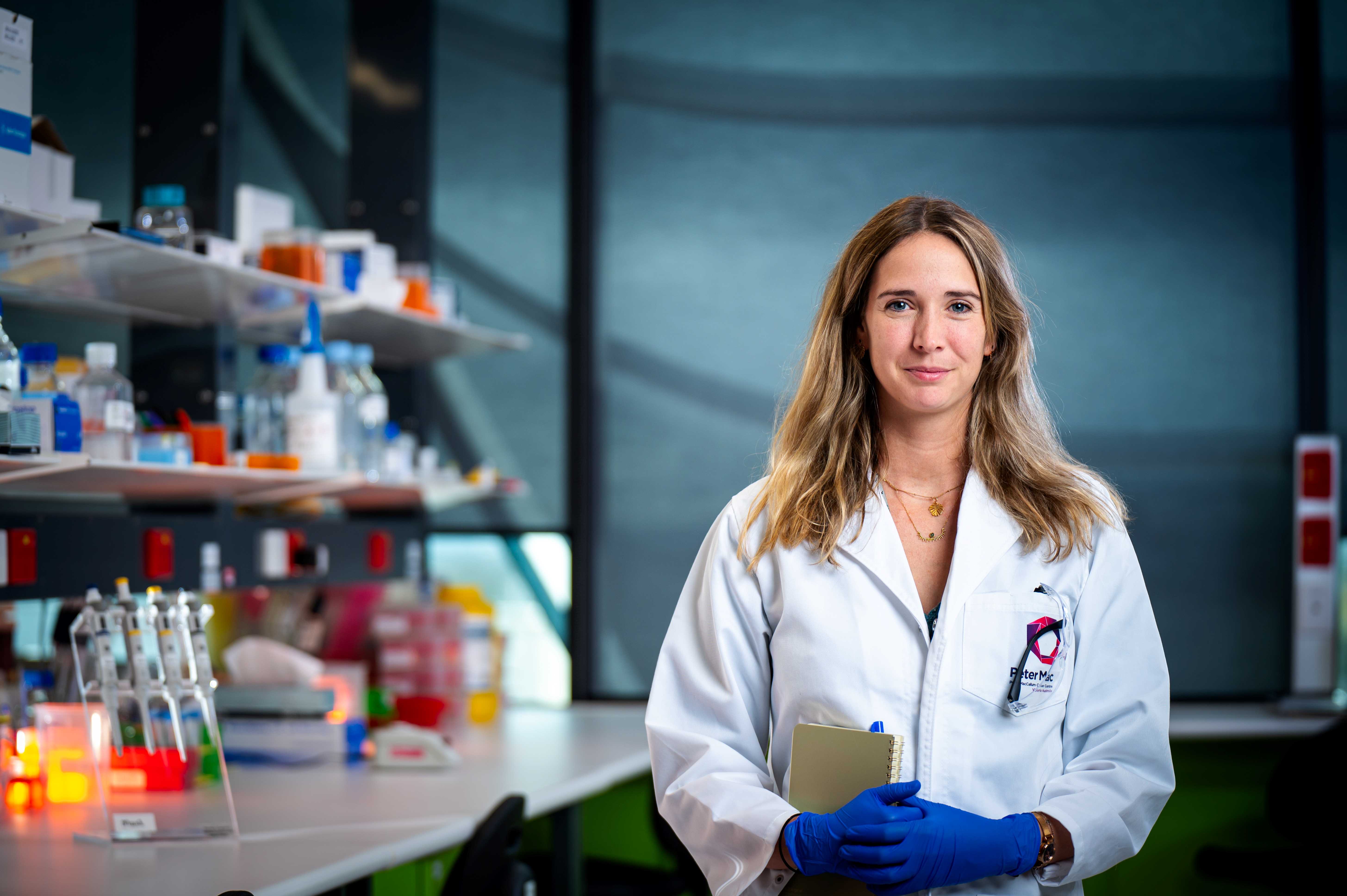Isabelle Munoz Q&A

Isabelle Munoz
Post-doctoral researcher
What are you researching in lay terms?
I am developing the next generation of immunotherapies known as CAR T-cell therapy. This innovative cancer treatment harnesses a person’s own immune cells to combat cancer effectively. Doctors begin by collecting immune cells, specifically T-cells, from the patient’s blood. These T-cells are then genetically modified to enhance their ability to recognise and eliminate cancer cells. This is achieved by introducing a specialised receptor called a CAR (chimeric antigen receptor) to the T-cells, enabling them to "see" and target cancer cells more effectively. Once modified, CAR T-cells are grown in large numbers and subsequently reinfused into the patient. Once inside the body, these "supercharged" T-cells actively seek out and destroy cancer cells. While CAR T-cell therapy has shown remarkable success in treating blood cancers, its effectiveness against solid tumours remains disappointing. Our laboratory is developing a new generation of CAR T-cell therapy through groundbreaking genetic engineering techniques aimed at translating the successes observed in blood cancer treatment to solid tumours.
What motivated you to come and work at Peter Mac?
I moved to Australia in 2021, leaving behind friends and family, to work at the Peter MacCallum Cancer Centre—one of the world’s leading institutions in cancer research and care. I’ve always been driven by the desire to make my research meaningful and impactful. Joining Peter Mac made perfect sense to me because it brings together researchers and clinicians in a truly collaborative environment, which significantly enhances the translational potential of my work. It’s a place where discoveries in the lab have a clear pathway to reach patients.
What drives you to achieve better outcomes for cancer patients?
It's impossible to stay passive after witnessing the profound impact cancer has had on people I care about. I am motivated by the hope that, through my work effort, someone else’s story can end differently. Every experiment I conduct is more than a scientific endeavour—it represents a step toward better, more effective treatment options. What truly drives me is the opportunity to contribute to groundbreaking research initiatives that have the potential to transform the lives of patients battling cancer. My commitment to this field stems from a desire to be part of a solution that offers hope for patients and their families.
How will your research improve outcomes for cancer patients?
While CAR T-cell therapy has shown remarkable success in treating certain blood cancers, its effectiveness against solid tumours remains limited, often resulting in poor or no responses. This limited success is due to several key barriers: (a) cancer cells continuously challenge and exhaust CAR T-cells, reducing their function and ability to persist over time; and (b) the hostile tumour microenvironment actively suppresses CAR T-cell activity, rendering them ineffective. In our lab, we use advanced genetic tools to develop a new generation of CAR T-cells designed to better withstand this hostile microenvironment and persist longer in the body, reducing the risk of relapse. Through our research, we aim to replicate the success seen in blood cancers and bring new, effective treatment options to patients with solid tumours, particularly those who have not responded to existing therapies.
What do you like most about working for Peter Mac?
What I appreciate most about working at Peter Mac is the vibrant multidisciplinary environment where clinicians and researchers collaborate closely to provide the highest standard of care for patients. I’ve had the opportunity to collaborate with some of the brightest minds in cancer research and feel proud to be part of a team that is not only pushing the boundaries of scientific discovery but is also dedicated to translating that knowledge into tangible, real-world impact. There is a profound sense of shared purpose at Peter Mac that is both inspiring and motivating.
Can you please detail how your research has used and benefited from the core facilities at Peter Mac?
Peter Mac is a world-class research centre, offering state-of-the-art core facilities and exceptional infrastructure that support both laboratory research and clinical translation. In our team, we rely on these core facilities daily—whether for flow cytometry, imaging, or genomic analysis—and their availability has been instrumental in enabling high-quality, cutting-edge research. Many aspects of our work would have been significantly more challenging, if not impossible, without them. Access to these resources allows us to conduct experiments more efficiently, generate robust data, and remain competitive on the international stage.
